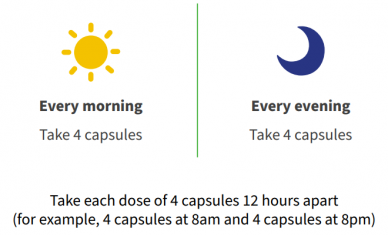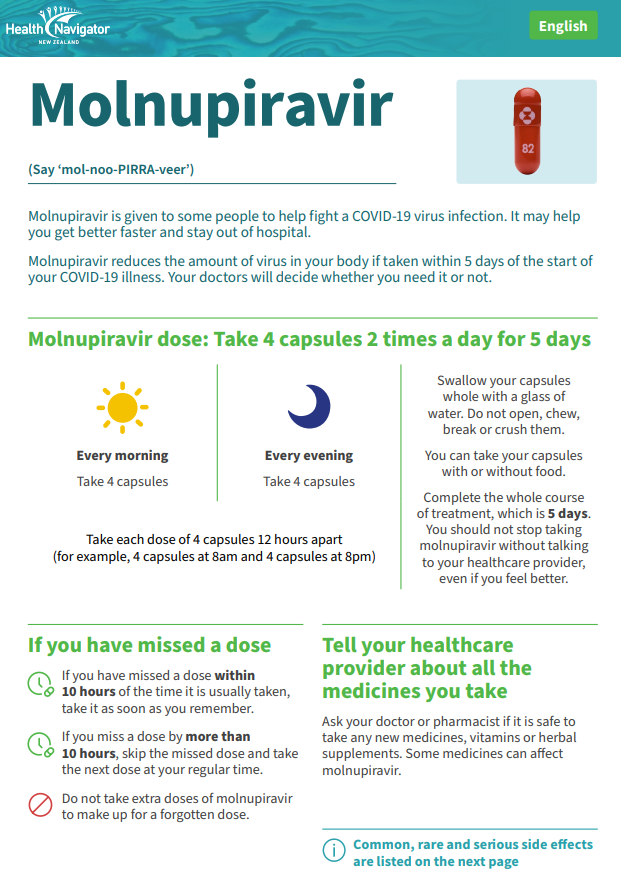Are you pregnant or could you become pregnant?
| Contraception is very important for both men and women taking molnupiravir |
| If you are pregnant, think you may be pregnant, planning to have a baby OR have a partner who may be able to become pregnant, do not take molnupiravir. Ask your doctor for advice as molnupiravir is not recommended during pregnancy. |
Effect on pregnancy: There is risk of harm to an unborn child when taking molnupiravir. People taking molnupiravir should avoid becoming pregnant (eg, use contraception or abstain from sexual activity) while taking molnupiravir AND for 4 days after treatment ends.
Effect on sperm: It is not known if molnupiravir can affect sperm in humans. If you are sexually active with a partner who could become pregnant, you should use a reliable method of contraception (birth control) during treatment AND for 3 months after the last dose of molnupiravir.
Are you breastfeeding?
Breastfeeding is not recommended during treatment AND for 4 days after the last dose of molnupiravir. This is because it is not known if molnupiravir gets into breast milk and will be passed to the baby. Tell your healthcare provider you are breastfeeding BEFORE taking this medicine.
Tell your healthcare provider about all the medicines you take
Molnupiravir may affect some of your other medicines and cause serious side effects.
- Tell your doctor or pharmacist if you are taking, or have recently taken, any other medicines, including prescription and over-the-counter medicines, vitamins and herbal supplements.
- Do not start taking a new medicine while you are taking molnupiravir without telling your healthcare provider. Your healthcare provider can tell you if it is safe to take molnupiravir with other medicines.









